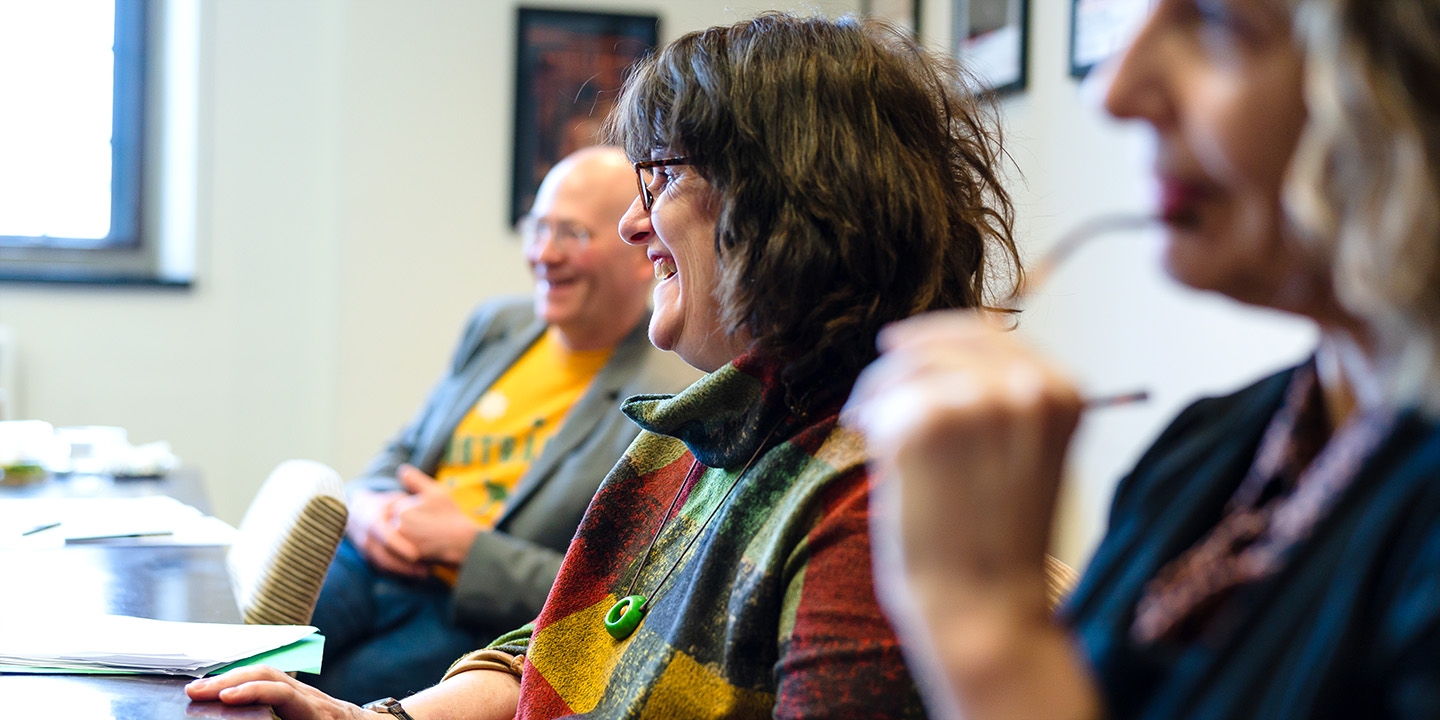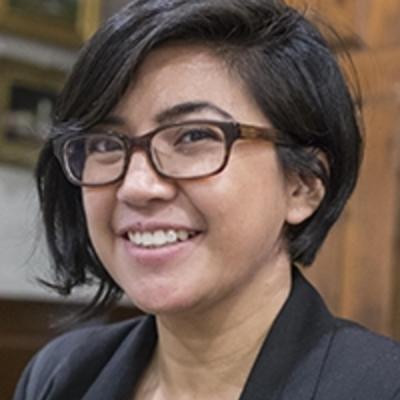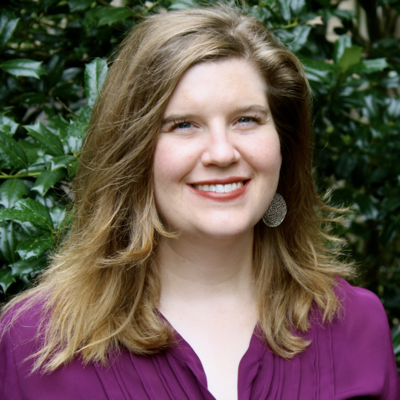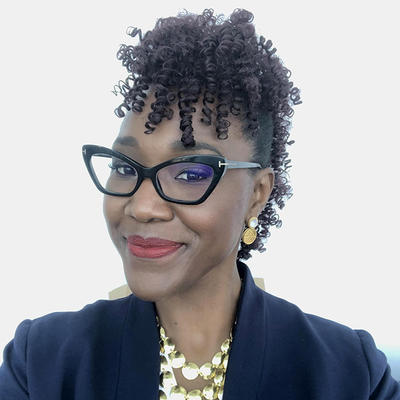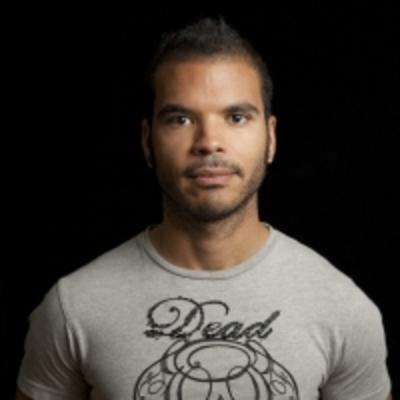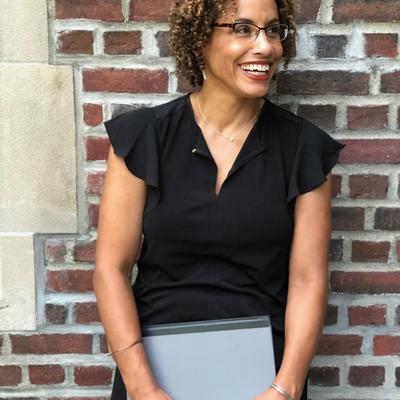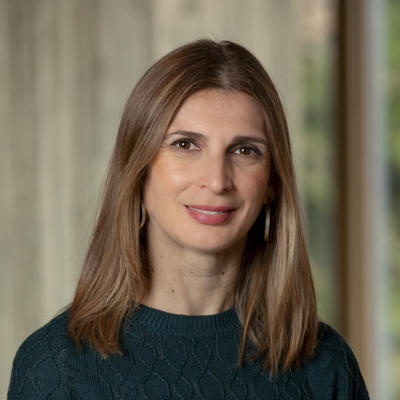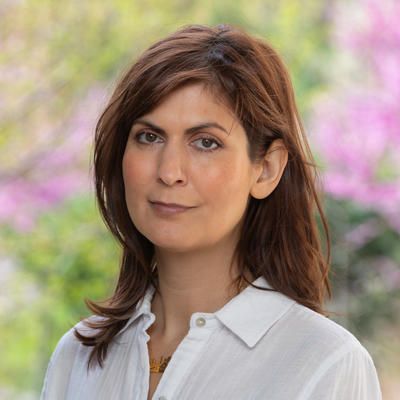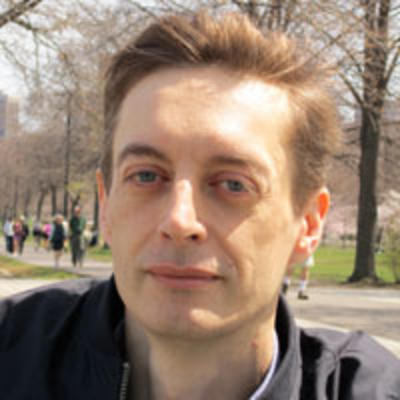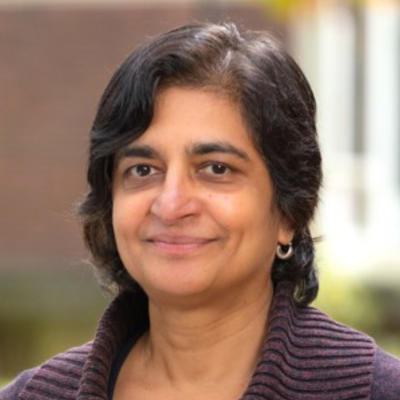Get to know us.
We are a community of faculty, scholars, staff, and students devoted to engagement in the humanities.
The Suzy Newhouse Center faculty fellows consists of Wellesley faculty on sabbatical and summer fellows. View previous fellows.
2024-2025 Fellows
-

Michelle Brock × Michelle BrockAssociate Professor of History, Washington and Lee University
Michelle BrockAssociate Professor of History, Washington and Lee UniversityMichelle D. Brock is Associate Professor of History at Washington and Lee University. A scholar or religion, gender, and the supernatural in early modern Scotland, she is the author of Satan and the Scots: The Devil in Post-Reformation Scotland (2016). She is also co-editor of Knowing Demons, Knowing Spirits in the Early Modern Period (2018) and the forthcoming Routledge History of the Devil in the Western Tradition. Additionally, she is co-director of Mapping the Scottish Reformation, a digital prosopography of the Scottish clergy between 1560 and 1689. Her second monograph, Plagues of the heart: Crisis and covenanting in a seventeenth-century Scottish town, will be published in fall 2024 with Manchester University Press.
During her time as a Newhouse fellow, Brock will work on her newest book project, tentatively titled "'An Unnatural Woman': Crime, Gender, and Spectacle in Eighteenth-Century Scotland." This project centers on the sensational case of Margaret Dickson, an ordinary fishwife who survived hanging for infanticide in Edinburgh in 1724 and became the subject of an intense national debate about sin and culpability. Using court records and printed news sources, "An Unnatural Woman" investigates how changing ideologies and media cultures on the eve of the Enlightenment produced a moral panic about female crime, sexuality, and choice. This eighteenth-century story of one woman's tragedy turned public spectacle speaks directly to the regulation of pregnant bodies and criminalization of reproductive decisions in our current moment.
-

Heng Du × Heng DuAndrew W. Mellon Assistant Professor of Chinese, Wellesley College
Heng DuAndrew W. Mellon Assistant Professor of Chinese, Wellesley CollegeHeng Du (杜恆) is Andrew W. Mellon Assistant Professor of Chinese in the Department of East Asian Languages and Cultures at Wellesley College. Her research focuses on the history of the book in early China (before 220 CE). In her existing publications, she explored topics such as authorship and information management as well as comparative study of ancient book cultures. Du received her Ph.D. in Chinese History from Harvard University, M.A. in Chinese Literature from the University of Colorado at Boulder, and B.A. in Classics and Comparative Literature from Cornell University. Prior to Wellesley, she taught at the University of Arizona and Tufts University. Du offers a range of courses on premodern Chinese literature, history, and philosophy, where she explores with students the deep relevance of the past to contemporary life.
As a Newhouse fellow, she will be completing her monograph project, “Paratext and the Transformation of Early Chinese Writings.” This work expands the concept of “paratext” to locate the intentions and agency of the nameless thinkers and compilers involved in early manuscript production. In doing so, it retraces transformations in the conceptions and practices of elite writing between the 4th c. BCE and 1st c. CE, when territorial states ballooned into the early Chinese empires, the Qin and the Han. It argues that the addition of paratextual elements facilitated a transformation in the enclosed texts’ social ontology: from an everyday object to an art object, from a thing-like entity to a human-like entity.
-

Scott Gunther × Scott GuntherProfessor of French and Francophone Studies, Wellesley College
Scott GuntherProfessor of French and Francophone Studies, Wellesley CollegeScott Gunther is a specialist of contemporary French culture and society. His research
interests include contemporary queer political movements in France, gender-inclusive and
gender-neutral language in French, sexual education in France, comparative
(French/American) law, Franco-German relations, the French social category of "bobos"
(i.e., bourgeois bohemians), and the cultural tastes of bourgeois Parisian children. His first
book, The Elastic Closet: A History of Homosexuality in France, 1942-Present, examines
LGBTQ politics in contemporary France with a focus on the complex relationship between
French republican values and the possibilities they offer for social change.
At the Newhouse Center, his project will involve two comparisons: first, a comparison of the
anti-mask/anti-social distancing/anti-COVID-vaccine rhetoric in France and the United
States, and second, a comparison of the media campaigns from the two countries’ health
agencies aimed at encouraging people to get vaccinated and
to practice sanitary measures such as wearing masks. -

Nicholaus Gutierrez × Nicholaus GutierrezAssistant Professor of Cinema & Media Studies
Nicholaus GutierrezAssistant Professor of Cinema & Media Studies -

Jovonna Jones × Jovonna JonesAssistant Professor of African American Literature and Culture, Boston College
Jovonna JonesAssistant Professor of African American Literature and Culture, Boston CollegeJovonna Jones is an Assistant Professor of African American Literature and Culture at Boston College. Her research and courses cover visual studies, Black feminisms, Black cultural criticism, and the built environment. Her writing has been published in Aperture, Boston Art Review, Callaloo, Souls, Southern Cultures, and the Museum of Contemporary Art-Chicago. She has held fellowships from Dartmouth College, the Edmond and Lily Safra Center for Ethics, and the Andrew W. Mellon Foundation. While in residence at the Newhouse Center, Jovonna will be working on her book The Last Thanksgiving at West Rutland Square. This project centers a legal battle between twelve elderly Black women and a real estate developer in 1980s Boston. The battle was waged over twin brownstones in the historic South End neighborhood, and ended with the residents displaced, even though they won their settlement in court. In a statement to a local newspaper following the case, one resident who had been living at West Rutland Square for 43 years told reporters, “I would still be there if the boom wasn’t lowered on me.” This book investigates the problem space of urban development in and through the scale of the intimate: the collective action of a group of women who labored to save their homes. One of those women was the author's grandmother, and her prescient record keeping preserved the memory of this event through newspaper articles, ephemera, bureaucratic documents, and photographs. Following the archival traces of the West Rutland Square case, the book surfaces the interior protocols of displacement that upended the lives of residents and fractured the landscape of Black Boston. In addition to Newhouse support, this project is also funded through a 2024-2025 ACLS Fellowship. Jovonna holds her PhD and MA from Harvard University and BA from Emory University.
-
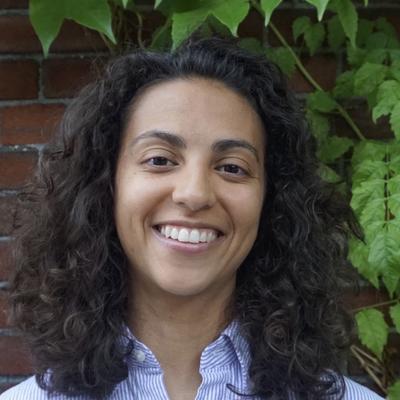
Allison Puglisi × Allison PuglisiAssistant Professor of History, Vassar College
Allison PuglisiAssistant Professor of History, Vassar CollegeAllison Puglisi is a historian of Black social movements, with an emphasis on gender, ecology,
and urban space. At the Newhouse Center she will revise her book manuscript, Redefining
Residency: Black Environmental Thought in New Orleans. This work in progress explores how
housing activists—particularly Black women—laid the early groundwork for Black
environmental organizing. It was through housing issues that a variety of political groups—the
Black Panthers, tenants’ organizations, and Black-led hurricane survivor groups—came to
critique modern environmental degradation. They found housing inequities inextricable from the
land on which their homes sat, and they understood home both as one’s house and the broader
ecology in which they lived. Redefining Residency is based on Allison’s dissertation, which
received honorable mention for the American Studies Association’s Ralph Henry Gabriel Prize.
Allison is originally from Phoenix, Arizona. She received a BA in History from Dartmouth
College and a PhD in American Studies from Harvard University, with a certificate in Gender
and Sexuality Studies. She was previously the Carol G. Lederer Postdoctoral Fellow at Brown
University’s Pembroke Center for Teaching and Research on Women. Her research has been
supported by the Social Science Research Council, the Ash Center for Democratic Governance
and Innovation, and the Institute for Citizens and Scholars. -

Sarah Wall-Randell × Sarah Wall-RandellProfessor of English, Wellesley College
Sarah Wall-RandellProfessor of English, Wellesley CollegeSarah Wall-Randell is the author of The Immaterial Book: Reading and Romance in Early Modern England (University of Michigan Press, 2013). She has also published several essays and book chapters on early modern editing practices, books as stage-props, Sibylline prophecy, Christopher Marlowe, and gender in Shakespearean performance, including “‘The proper false’: ‘Original Practices’ and Transmisogyny,” in Twelfth Night: The State of Play, ed. Emma Smith (Arden Shakespeare, Bloomsbury Press, forthcoming 2025). She is the editor of Marlowe’s translation of Lucan’s Civil War for the forthcoming Oxford Collected Marlowe.
While at the Newhouse Center she will work on a new book project, Shakespeare’s Seven Sisters, about the history of Shakespeare performance at historically women’s colleges in America. Within a decade of their foundations in the late nineteenth century, prominent American women’s colleges organized dramatic societies in which Shakespeare was frequently performed, such as Radcliffe’s Idler Club, Vassar’s Philaletheis Society, and Smith’s Dramatics Association, or dedicated Shakespeare clubs, like the ones at Wellesley and Bryn Mawr. Still other colleges, including historically Black women’s colleges like Bennett (in Greensboro, NC) and Spelman, centered Shakespeare performance early in their histories, not only among student activities but also at important community events like convocations and commencements. Recent years have found women’s colleges embroiled in controversy about their inclusion or exclusion of trans and nonbinary students. Wall-Randell’s book will argue that gender nonconformity, among other performative queer energies, has thrived at women’s colleges since the beginning, under the cloak of Shakespeare’s prestige.
-

Lisa Woolfork × Lisa WoolforkAssociate Professor of English, University of Virginia
Lisa WoolforkAssociate Professor of English, University of VirginiaPracticing the unlikely but not unprecedented mix of needle arts and Black liberation, Lisa Woolfork sewing and quilting practice operates alongside her scholarly work as an Associate Professor of English at the University of Virginia. Woolfork is an academic, sewist, community organizer, and podcaster. She is the founder of Black Women Stitch, the sewing group where Black Lives Matter. She is also the host/producer of Stitch Please, a weekly audio podcast that centers Black women, girls, and femmes in sewing. In the summer of 2017, she organized in community to protest the white supremacist insurgency in her city Charlottesville, VA. She resisted in a variety of ways including nonviolent direct action, working with a bail fund for activists, sewing for a creative arts team, and participating in, and later co-founding, CARML, an antiracist media collective. Her essay “‘This Class of Persons:’ When UVA’s White Supremacist Past Meets Its Future” was published in a collection of essays about the terror events in Charlottesville. She has spoken about the connections between Black liberation and craft for the Smithsonian’s African American Craft Summit, the Modern Quilt Guild, the Center for Craft, and more. She is currently writing Black Women Stitch Liberation, a book that addresses the connections between Black women’s creativity, autonomy, and community.
2023-2024 Fellows
-
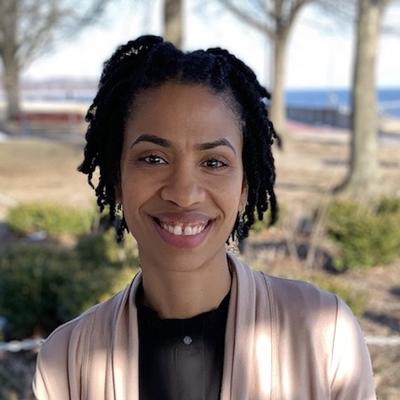
Kaysha Corinealdi × Kaysha CorinealdiAssociate Professor of History, Emerson College
Kaysha CorinealdiAssociate Professor of History, Emerson CollegeKaysha Corinealdi is an Associate Professor of History at Emerson College. She specializes in twentieth century histories of empire, migration, feminism, and Afro-diasporic activism in the Americas. Her book, Panama in Black: Afro-Caribbean World Making in the Twentieth Century (Duke University Press, 2022), centers the activism of Afro-Caribbean migrants and their descendants as they navigated practices and policies of anti-Blackness, xenophobia, denationalization, and white supremacy in Panama and the United States. To learn more about Corinealdi’s overall scholarship, including her public-facing work, please visit her website.
During her time as a Newhouse Fellow, Corinealdi will work on a second book project tentatively titled, Radical Women on the Panamanian Isthmus, which examines the political activism and careers of Afro-descendant women during a century marked by suffrage campaigns, anti-war and anti-imperialist organizing, the Cold War, and the rise of a thirty-year dictatorship. The project incorporates governmental and private archives, oral interviews, and newspaper findings from Cuba, Mexico, Panama, and the United States, with the goal of highlighting the communal and internationalist nature of the political work of a small yet vibrant cross-generational group of Black women.
-
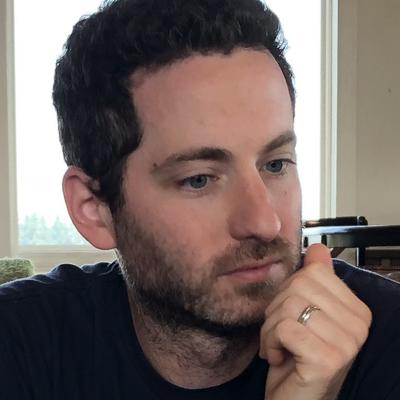
Josh Lambert × Josh LambertSophia Moses Robison Associate Professor of Jewish Studies and English
Josh LambertSophia Moses Robison Associate Professor of Jewish Studies and English -
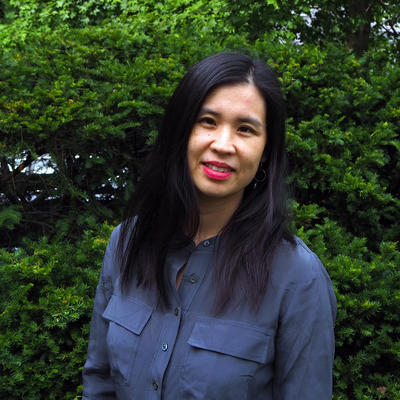
Michelle C. Lee × Michelle C. LeeAndrew W. Mellon Assistant Professor of French and Francophone Studies
Michelle C. LeeAndrew W. Mellon Assistant Professor of French and Francophone Studies -
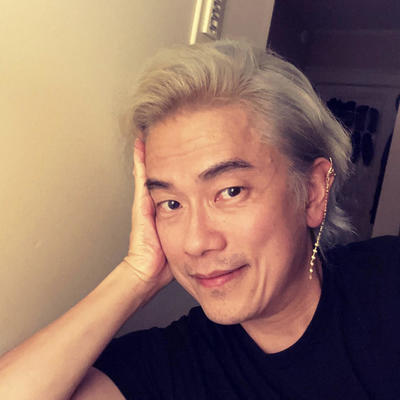
Eng-Beng Lim × Eng-Beng LimAssociate Professor of Women's, Gender, and Sexuality Studies; Founding Director of the Consortium of Race, Migration and Sexuality, Dartmouth College
Eng-Beng LimAssociate Professor of Women's, Gender, and Sexuality Studies; Founding Director of the Consortium of Race, Migration and Sexuality, Dartmouth CollegeEng-Beng Lim is Associate Professor of Women’s, Gender, and Sexuality Studies, and the founding director of the Consortium of Studies in Race, Migration, and Sexuality at Dartmouth College. He is the author of the award-winning Brown Boys and Rice Queens: Spellbinding Performance in the Asias (NYU Press, 2014), which examines the legacies of queer colonialism in the performance of orientalist intimacies across Asia and Asia America.
At the Newhouse Center, he will be completing his second monograph, Megastructures of Feeling, that extends Raymond Williams’s “structures of feeling” to architectural utopias and migration art that look to impossible form, stunning iconicity and futuristic fantasy as elusive styles that are at once evanescent in their manifestions and yet crucial in renewing the question of scale and stature as a racial and queer concept, particularly in Asia America.
He is also working on two other secondary projects. The first entitled, Ethnocuties, a neologism borne of ethnoporn and cute studies, is a visual study of photography and fantasy art by artists exploring radical queer friendship that may be forged with plants or through aesthetic experimentations that are uncanny, wild and cute. The second is a multi-volume anthology of one-act immigration plays by Asian American performers and writers.
-
PRR
Petra R. Rivera-Rideau ×PRRPetra R. Rivera-RideauAssociate Professor of American Studies -
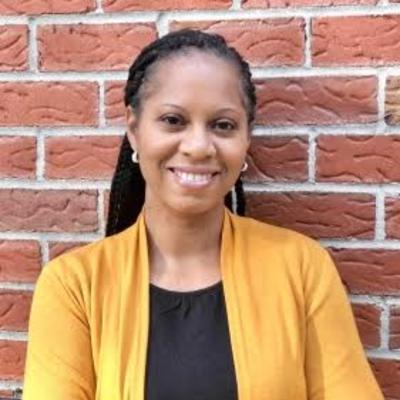
LaToya Sawyer × LaToya SawyerAssistant Professor of English, St. John's University
LaToya SawyerAssistant Professor of English, St. John's UniversityLaToya Lydia Sawyer (she/her/hers) is an assistant professor of English at St. John’s University. Her research focuses on Black women’s rhetoric, literacies, and discourse practices online. She is currently working on her first book titled Composing Digital Black Womanhood which examines Black women’s identity performances and agency across social media platforms.
Dr. Sawyer teaches graduate and undergraduate courses in Black Diasporic rhetoric and writing, digital rhetoric, feminist theory, African American women’s rhetoric, and African American literacies. She was awarded a 2020-2021 American Postdoctoral Fellow through the American Association of University Women and was a 2014-2016 fellow in the National Council of Teachers of English Cultivating New Voices program, and a 2012 Conference of College Composition and Communication Scholar for the Dream.
Dr. Sawyer received her Ph.D. in Composition and Cultural Rhetoric with a Certificate of Advanced Studies in Women and Gender Studies and her MA in Newspaper, Magazine, and Online Media from Syracuse University, and her BA in English from Hartwick College. Sawyer’s writing has appeared in Peitho and Education Review.
-
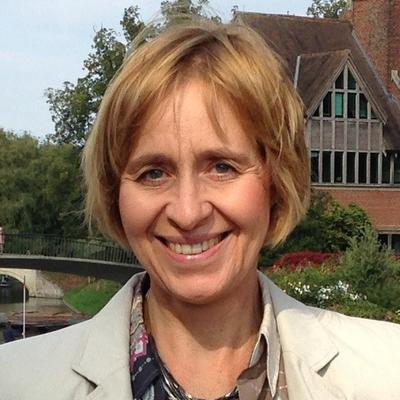
Franziska Seraphim × Franziska SeraphimAssociate Professor of History, Boston College
Franziska SeraphimAssociate Professor of History, Boston CollegeBorn and raised in Germany, I was trained as a historian of modern Japan at Columbia University and have been teaching history at Boston College since 2001. My first book dealt with the social landscapes of war memory in postwar Japan. Since then, I have devoted much of my teaching and research to exploring ways of “thinking history globally,” to which the geographical notions of space, place, and scale are central if we are to understand the abiding inequalities that have come to structure our global world.
In my current book manuscript, which I hope to finish drafting as a Newhouse fellow this year, I go back to the aftermath of World War II--long hailed as a transformative moment that codified global justice and human rights in the Western response to the atrocities committed by Nazi Germany and Imperial Japan--to recreate a legal geography of the Allied war crimes program, which has too often been reduced to the Nuremberg Trials of Nazi leaders. In taking a global view, I reconstruct the spaces and places that served as sources of legitimation and contestation of legal processes in Asia, Eurasia, and Europe, from (colonial) territoriality and military law to legislation enabling the reintegration of the convicted in society after their release. The viewpoint from the prison rather than the courtroom, of punishment rather than legal conviction, helps to locate this Allied endeavor on a transnational scale that includes the former perpetrator societies as co-creators of meanings of justice.
Thanks to the generosity of Mary L. Cornille and Jack Cogan, Wellesley College is able to appoint each year the Mary L. Cornille Distinguished Scholar in Residence. Cornille Scholars are in residence for either a semester or a year. During this time, they contribute to the intellectual life of Wellesley College faculty with special attention to the intellectual growth of our undergraduates.
The Cornille Scholar in Residence is administered jointly by the Office of the Provost and by the Suzy Newhouse Center for the Humanities, with which the Cornille Scholar is automatically affiliated.
-

Jonathan Adler × Jonathan AdlerProfessor of Psychology, Olin College; Senior Lecturer at Harvard Medical School
Jonathan AdlerProfessor of Psychology, Olin College; Senior Lecturer at Harvard Medical SchoolJonathan Adler, Professor of Psychology at Olin College of Engineering and Senior Lecturer at
Harvard Medical School, is the 2024-2025 Mary L. Cornille Distinguished Scholar in Residence
at the Suzy Newhouse Center for the Humanities.Professor Adler is an interdisciplinary scholar whose research focuses on identity development
and its relationships with psychological well-being. In the past seven years, Professor Adler has
focused especially on identity and well-being among people with disabilities, drawing on both
psychological science and the humanistic discipline of disability studies. Professor Adler
currently serves as Editor of Personality and Social Psychology Review, the top-ranked journal
in those fields, devoted to major advancements in theory. He is the first Editor from a small
college to helm the journal. In addition, for the past decade, Professor Adler has served as Chief
Academic Officer of Health Story Collaborative, a Cambridge-based non-profit that works to
elevate personal stories in the fragmented and fragmenting healthcare ecosystem. Professor
Adler’s research is often cited in the media, including outlets such as: The New York Times,
National Public Radio, The Wall Street Journal, The Boston Globe, The Atlantic, Scientific
American, The Today Show, and many others. In October of 2023, the National Public Radio
program Hidden Brain featured Professor Adler’s work. In addition to his research, Professor
Adler is a theater director and playwright. He has directed numerous plays at colleges and
universities and a play he co-authored, Reverse Transcription, premiered Off-Broadway in July
2022 at The Atlantic Theater Company’s Stage 2, produced by PTP/NYC. Professor Adler co-
directs two annual Story Slams at Olin College, as well as storytelling events elsewhere,
including for Wellesley’s 2023 Ruhlman Conference. Professor Adler lives in Newton,
Massachusetts with his husband, their two kids, and elderly rescue mutt.At the Newhouse Center, Professor Adler will be working on a book project aimed at a popular
audience (he is represented by Christy Fletcher at United Talent Agency). The book will work to
revise contemporary notions of selfhood, embracing the insights from both the psychological
science of identity and the humanistic study of identity from critical and disability-focused
perspectives.
-
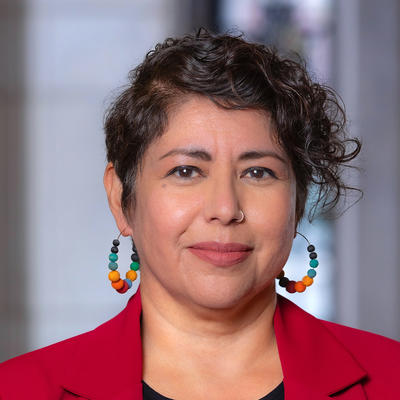
Irene Mata × Irene MataDirector, Suzy Newhouse Center for the Humanities; Faculty Director, Mellon Mays Undergraduate Fellowship Program; Associate Professor of American Studies
Irene MataDirector, Suzy Newhouse Center for the Humanities; Faculty Director, Mellon Mays Undergraduate Fellowship Program; Associate Professor of American StudiesAs an interdisciplinary scholar, I am committed to supporting the growth of the humanities at Wellesley. Humanistic thinking is vital to all fields of study and to our growth as individuals and critical thinkers. It is through the arts and humanities that we learn to express our creativity, connect to our humanity, and ask the questions that expand our worldview.
My research blends my love of literature, performance, and cultural studies and focuses on interrogating the representation of communities of color in contemporary creative works. My first book, Domestic Disturbances: Re-Imagining Narratives of Gender, Labor, and Immigration, examines the stories created by Chicana/Latina writers through a new immigrant narrative paradigm. My second manuscript, Beyond the Moment: The Art of Resistance in Latinx Performance, engages with Latinx performance texts that rely on previous moments of resistance to imagine new—and future—visions of social change.
I am also committed to helping develop a robust mentoring community for students and faculty at Wellesley and across other academic institutions. Since the fall 2021, I have worked with Téo Barbalho in developing our Mellon Mays Undergraduate Fellowship Program to inspire and prepare young scholars interested in continuing their education in the humanities at the graduate level. I have collaborated in the creation of various mentoring programs for faculty of color at Wellesley and in the New England area. As part of the New England Humanities Consortium’s Faculty of Color Working Group, with funding from the Mellon Foundation, M. Gabriela Torres, Melva Treviño and I created a regional mentoring program that brings together early-career scholars and dedicated senior mentors to foster a network of learning, community building, and support. Our work culminated in a piece for Inside Higher Ed, “A Change Higher Education Needs Today.” All of these mentoring initiatives benefit individuals while encouraging change at the institutional level.
At the root of all of my work is a deep love for community and an abiding commitment to social justice. -
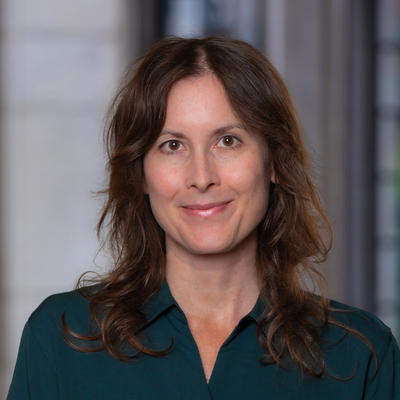
Julie Walsh × Julie WalshDirector, Suzy Newhouse Center for the Humanities; Associate Professor of Philosophy
Julie WalshDirector, Suzy Newhouse Center for the Humanities; Associate Professor of PhilosophyIn my leadership role in The Newhouse, I am particularly eager to support projects that push the traditional boundaries of the humanistic sciences. My first academic love was evolutionary biology; ever since, I have been fascinated by the historical and contemporary intersections between science, philosophy, and religion.
I am currently exploring this intersection in research that engages with ethical questions surrounding the development, deployment, and use of digital technologies. In this project, I partner with my colleague Professor Eni Mustafaraj in Computer Science. With the support of a National Science Foundation grant, we are studying the ways that liberal arts institutions like Wellesley prepare their graduates for the ethical dimension of careers in the digital technology sector. You can read more about our project here.
I also have a longstanding interest in historical treatments of human freedom, especially from marginalized philosophers. You can read a short piece about one such figure in my essay "Gabrielle Suchon, Philosopher Queen of the Amazons" in the National Endowment of the Humanities Magazine.
A historical event that unites all of my interests is the witch panic of Early Modern Western Europe and the Colonial United States. I teach a class on this topic (Philosophy & Witchcraft) and am invested in looking at the variety of ways that the witch hunts were defended or decried by philosophers of the time. You can listen to an interview I did on WBUR, as part of the "Brilliant Boston" series, on the Salem witch hunts here, and you can read a short interview I did with GBH news on the topic here.
-
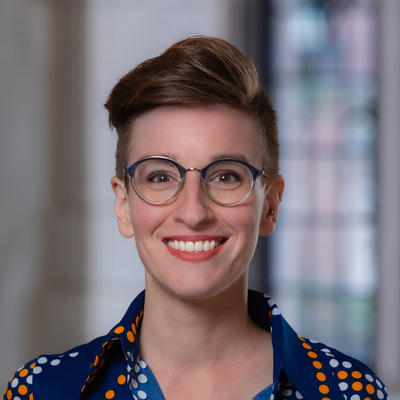
Lauren Cote × Lauren CoteEvent and Program Manager
Lauren CoteEvent and Program ManagerLauren Cote holds a Master of Arts in English. Although she was always interested in creative writing, she chose to study literature after reading Salman Rushdie’s Haroun and the Sea of Stories as an undergraduate. This book is still one of her favorites, and stands at the core of her outlook on the humanities as vast, interconnected fields in which human stories, ideas, and experiences intertwine and build upon one another.
Since joining the Newhouse Center in 2018, Lauren has planned and executed over 150 public-facing events, including academic lectures and panels, author visits, art exhibitions, symposia, and concerts. She is involved in each event from the initial planning all the way to day-of execution and wrap-up, and she takes great pride in watching them come together.
Lauren also provides administrative support for the directors and visiting fellows. In this aspect of her job, she likes to picture herself as a concierge: whatever you need, she’ll make it happen.
Outside of the Newhouse Center, Lauren is an avid cyclist, papercrafter, and painter of tabletop miniatures. Her twelve-year-old Norwegian Forest Cat, Louie, keeps her humble.
Mellon Mays Undergraduate Fellows
-

Cecelia Adame × Cecelia AdameClass of 2025 - American Studies
Cecelia AdameClass of 2025 - American StudiesCecelia's research focuses on exploring the intersection between constructions of femininity and Mexican Regional music. She will be specifically researching how the careers and music by Selena Quintanilla Perez and Jenni Rivera contradict and perform expected expressions of gender throughout their life and in death.
-

Alexa Fronczek-Lewis × Alexa Fronczek-LewisClass of 2025 - Anthropology
Alexa Fronczek-LewisClass of 2025 - AnthropologyMaria Chi-Chable is a Women’s and Gender Studies major and prospective Cinema and Media Studies minor. Using borderland theory, Maria examines how the Mexican-American singer, Jenni Rivera, transmits images of border life, displacement, and the culture of working-class communities. As a proud daughter of immigrant parents, Maria is interested in examining how Rivera gives voice to the female migrant body.
-

Angelica Delgado Navarro × Angelica Delgado NavarroClass of 2025 - Anthropology
Angelica Delgado NavarroClass of 2025 - AnthropologyAngelica is a Senior from Phoenix, Arizona majoring in Anthropology with a socio-cultural focus. Her project focuses on the effects tourism has on the celebration of Dia de los Muertos or Day of the Dead in Oaxaca, Mexico. By learning about the stories of locals and tourists, her project explores themes of colonization and the efforts of local communities to preserve the traditions. Angelica is also a student assistant at the Suzy Newhouse Center for the Humanities.
-
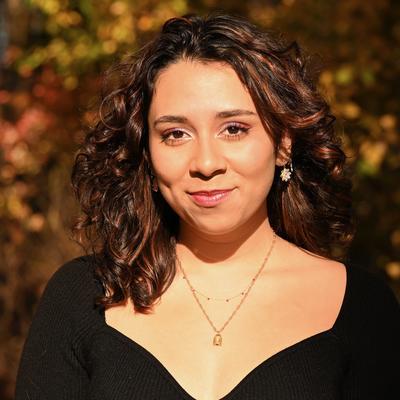
Heather Gager × Heather GagerClass of 2025 - Anthropology & Economics
Heather GagerClass of 2025 - Anthropology & EconomicsHeather is a junior from the South Texas-Mexico border whose experience has fueled her research interests in examining the importance of language in establishing socioeconomic statuses in the United States through Spanish sociolinguistics via local, state, and federal legislature as well as day-to-day life on the border.
-

Kaylabelle Mundi × Kaylabelle MundiClass of 2024 - Political Science and Africana Studies
Kaylabelle MundiClass of 2024 - Political Science and Africana StudiesKaylabelle (she/her) is a junior whose research aims to address the process of socialization undergone by low-income students attending prep-schools and how this transfer of privilege can conflict with and create tension which informs the ways students interact with elite institutional characteristics that are a product of the elite institutional habitus. This project would also investigate implicit and explicit policies embedded within elite institutions that perpetuate a homogenized interpretation of class, access, and privilege, exploring if there are selection preferences within the pool of high-achieving, low-income applicants, that despite equity-centered initiatives, aim to preserve a homogeneous culture of elitism, whiteness, and wealth - ultimately the reproduction of the social elite.
-

L. Goins × L. GoinsClass of 2026 - American Studies
L. GoinsClass of 2026 - American StudiesLJ's research is an intersection of American cultural studies and media studies, placing the contemporary phenomenon of virality and the inception of minstrelsy in conversation with another and highlighting how they have produced a feedback loop in the 21st century. Analyzing the production and distribution apparatuses of Blackface minstrelsy and sequential image social network sites (SNS), they embark on contributing to the scholastic archive of 2010-2020 cultural phenomena, specifically SNSs that emerged from 2013 to 2016: Vine, Dubsmash, Music.ly, and TikTok. Within this research, they focus on the notion of virality and how it has become an integral factor in the production and distribution apparatuses of SNSs, somehow motivating contemporary reproductions of Blackface and racial impersonation.
-

Kristal Maimo × Kristal MaimoClass of 2026 - Africana Studies and Economics
Kristal MaimoClass of 2026 - Africana Studies and EconomicsKristal is a junior from Silver Spring, Maryland who’s current research project aims to analyze the treatment and societal reception of black maternal mental health with a focus on the ostracization of black parents within the structure of the for-profit American healthcare system, judicial court rulings, and general societal rhetoric. The research will also uncover how black caricatures such as the “mammy” along with the inception of the Obstetrics and Gynecology (OBGYN) field fueled nefarious ideas of black indestructibility that continue to harm black birthing persons whose journey’s with parenthood are not linear.
-
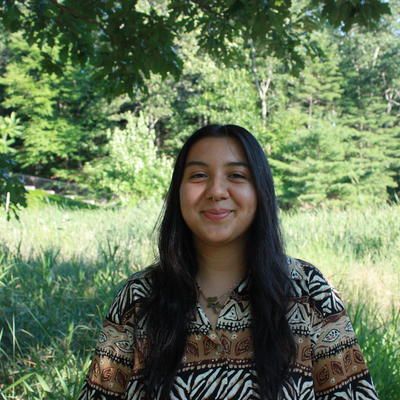
Karla Narvaez × Karla NarvaezClass of 2026 - American Studies and Art History
Karla NarvaezClass of 2026 - American Studies and Art HistoryKarla's research focuses on community-based art projects and collectives led by contemporary Central American artists. She is particularly interested in how these artists use public art (i.e. murals) to preserve their culture while residing in the United States, and their collaboration with grassroots and nongovernmental organizations. Her work involves closely observing their coordination with organizers, learning from their methods, and documenting how art can foster community connections.
-

Grace Rigsby × Grace RigsbyClass of 2026 - Philosophy and Environmental Studies
Grace RigsbyClass of 2026 - Philosophy and Environmental StudiesGrace is a Junior from Little Rock, Arkansas with a passion for environmental justice advocacy. Her research examines how colonial epistemologies have shaped and influenced the way a post-colonial society views and interacts with the natural world. Using the principles of moral philosophy as her foundation for this research, she wants to acknowledge and incorporate other, often ignored and undervalued, cultural conceptions and epistemologies of interacting with the natural world to bring attention to and provide solutions for the water crises occurring in several marginalized communities.
-

Shaela Sageth × Shaela SagethClass of 2026 - Cinema and Media Studies
Shaela SagethClass of 2026 - Cinema and Media StudiesShaela's research explores the spectacle of the marginalized body as it is upheld in contemporary art museums, primarily through video sculpture and interactive installations. They investigate how sensory techniques - such as texture, embodied design, and haptic (touch) technology, sustain a practice of colonial, unconsented touch on marginalized bodies. They are interested in analyzing this postcolonial era which explores engagement with museum objects and popularizes works that refine tactile aesthetic abilities.

